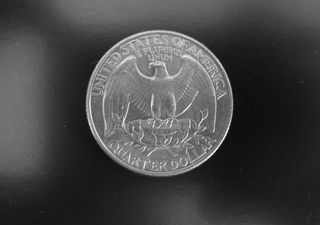Decision-Making
How to Make Important Life Decisions
Enlist both your mind and your gut to choose your best path.
Posted June 28, 2017
Have you ever faced a big, life-changing decision, where the right answer isn’t clear?
Perhaps you’re thinking about quitting your job, or moving to a different city, or considering whether to leave or stay in a relationship. But what if you feel ambivalent, confused, or unsure about which way to go? What if you’re even afraid to decide because you might choose “the wrong path?”
We usually think of decision-making as “rational” and so we focus on putting our minds to determining the right way to go. But making important decisions is not simply a matter of devoting your intellect to the task. It also involves devoting your gut.
But how can your gut possibly “know” anything? Isn’t information and decision-making confined to the brain in your head? Well, yes—and no.

The brain is indeed the seat of reason, knowledge, and rational decision-making. But your gut is considered to be “the second brain” because it is intimately tied to the brain in your head. These "two brains” are connected by an extensive network of neurons as well as blood flow, and often act in concert. For instance, there is mounting evidence that the gut microbiome influences behavior and mood. And when the first brain detects a threat, it pumps stress hormones into the bloodstream, increasing heart rate and breathing, and affecting the gut as well. The first brain can also quickly take in massive amounts of information and convey the results, unfiltered, to the rest of your body. As evidence, consider the tightness you feel in the pit of your stomach when you open that letter from the IRS. Or the butterflies in your gut when you receive exciting news. Or your body's instant—and wise—fight, flight, or freeze reaction when you're met with an emergency.
In this two-part post, we’ll look first at how to enlist your gut in decision-making; the next post will look at how to enlist your mind. After all, as the saying goes, “Two brains are better than one.” So why not tap into both of yours?
Here are two simple ways to listen to your gut.

Tune into your body’s physical sensations.
Being aware of your gut reaction is a way to tap into the body’s wisdom about what’s right and good for you, or likewise, what’s threatening, constraining, or a bad fit. For instance, if you feel excited, relieved, or relaxed in your body when you think about pursuing a certain option, this bodily reaction shows that you truly favor that path, and you might do well to heed this message.
Alternatively, tension, queasiness, pain, or rashes can be the body’s way of saying, “This situation isn’t right for me.” So when you consider a certain path and your gut feeling is “bad,” it’s likely picking up on threats perceived by your first brain, but downplayed by your mind, which may be busy justifying that choice. And if you are experiencing physical symptoms as you wend your way along your current path, your distress can signal that it’s time to wake up, face the truth, and seek a different path. So, if you’re dissatisfied with a job, a community, or a person, the answer may be to quit and move on, or it may be to speak up and make modifications within the current set up. Which do you have the stomach for?

Flip a coin.
This may seem silly or superstitious, but it can be a very effective way to listen to your gut.
For example, let’s say you have a new job offer, but you like your current job and you’re not sure you want to leave it. Pick up a coin and assign the heads and tails to different options, e.g.,
Heads—you quit your job and take the new position.
Tails—you turn down the offer and stay put.
Now, get ready to flip it, look at the result, and note your immediate bodily reaction. GO.
HEADS says: You take the new job. What does your gut tell you? Are you excited, relaxed, or filled with dread?
TAILS says: You keep your current job. What does your gut tell you? Are you disappointed or relieved?

You can do this several times so that you can see what happens when you flip either heads or tails, so you can see your reaction to both sides of the coin.
Flipping a coin works by getting your over-analyzing mind out of the way and revealing your true preference.
Sometimes your gut reaction can lead you astray. For instance, you might be the kind of person who is consistently anxious about changing the status quo, making you shy away from rocking the boat with promising options like Leave or Quit. Or you might be unnecessarily wary about a certain option because of a bad experience that actually is not a factor in the situation currently before you. Or you might be feeling unwarranted optimism due to fantasies you harbor. And that’s where your other brain—your mind—can be valuable. You can bring self-awareness, careful reasoning, and your integrity into play.
Still, your gut instinct is a valuable player in your decision-making. Particularly if your mind is deadlocked, your gut can be the tiebreaker and lead the way.
Read my next post for how to harness your mind’s power for making a sound decision.


